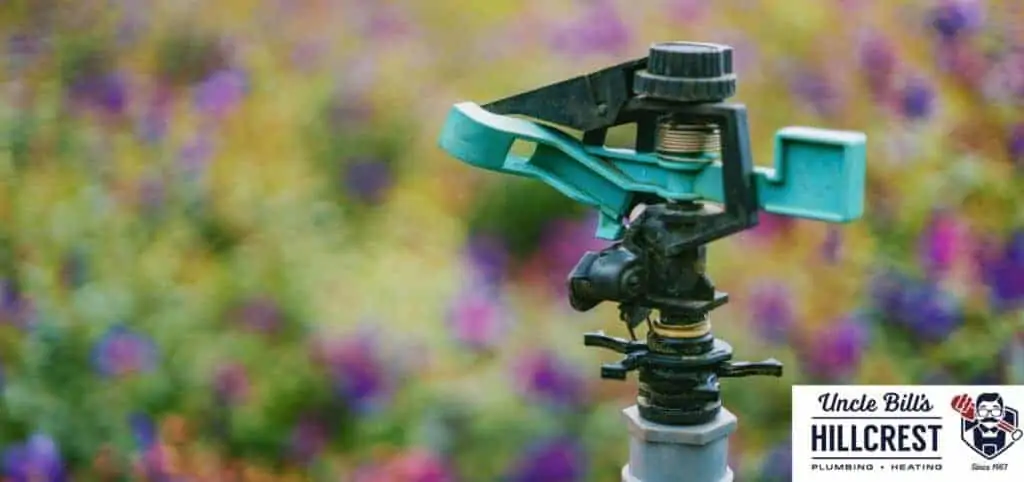Spring and summer are a welcome break from the usual “Raincouver” weather, but that doesn’t mean you should forget about your plumbing and drainage systems.
In fact, if you want to protect your home in the long run, you’ll want to pay *extra* attention to certain plumbing and drainage areas during Vancouver’s warmer months.
It seems a little bit counterintuitive at first, but it actually makes sense — maintaining your home’s plumbing and drainage systems isn’t easy when they’re constantly being used. During drier weather, you can work on them without slogging through the muck or worrying about your drainage system being half-assembled when a storm arrives.
With just a handful of DIY maintenance tips, you’ll be able to avoid some of summer’s biggest annoyances (no more dried out lawns!) while preparing your home to shrug off next year’s fall and winter storms.
Clean your gutters and downspouts
Vancouver winters may be milder than in other parts of the country, but they can still leave a mark on your home’s plumbing — and certainly not in a good way.
As spring arrives, you’ll want to check around your home for damage or potential concerns. Like with most kinds of cleaning, it’s good to work your way from top to bottom, starting with your gutters and downspouts.
They’re often overlooked, but they’re an important part of your home’s plumbing system as well. If they’re clogged or blocked, rainwater won’t be directed to drainage areas properly, which can cause significant damage.
A little bit of water dripping out where it shouldn’t be may not seem like a big deal, but you have to consider where that water may end up.
Instead of draining away, the water can flow into cracks and crevices in your home’s foundation, and – as the weather dips below zero – eventually freeze. Freezing water expands, and over time, this kind of expansion can severely damage your home’s foundation.
So, don’t just ignore any blockages or overflows you notice affecting your gutter system. Clean your gutters and test your downspouts in the summertime to make sure everything is clean and functional for the next fall and winter seasons.
Inspect your drainage and pipes
Look over your pipes and water tank and take stock of anything that looks out of the ordinary. Check to ensure that all valves are tight. There should be no wetness or water gathering anywhere.
As you look over each pipe, check for any signs of rust or residue buildup and take stock of parts that may need to be replaced.
Another often-missed sign to watch out for – water stains. Look for them on the ground or on objects located underneath pipes. While the water may no longer be there without regular precipitation, the stains can tell you that there was a leakage issue and give you an idea of how severe it was.
Finally, you can also check the area around your house. Is there a part of your yard that collects water? If so, you may need to install a better drainage system. You don’t want water to sit in one area of your yard, especially if there are water restrictions that limit sprinklers.
Plan for water restrictions
Water restrictions are in effect during the summer months in Vancouver, but with a few adjustments to your plumbing and plant choices, you can still enjoy a beautiful garden.
Sprinklers are convenient, but they also tend to be the most heavily restricted choice when it comes to watering your lawn or garden.
Instead, you might want to experiment with a soaker hose or drip irrigation system. They have the same kind of “set-it-and-forget-it” convenience as a sprinkler system, but they distribute water more efficiently.
Likewise, if you don’t want to see your garden shrivel in the sun, try planting strains of plants that don’t require much water. A succulent garden, for example, is low on water and will leave your garden with a lush touch of green all summer.
Recognize expansion risks
Freezing water isn’t the only expansion risk! Your pipes and appliances also expand in the heat, so summertime is naturally when you need to be most vigilant about them.
Be sure to frequently check utilities such as your garden hose, washing machine hose and the lines of your sprinkler system around the outside of your house.
Anything exposed to the direct heat of the sun can easily expand and crack. If you notice cracks in your home, hose or other outdoor pipes, like your sprinkler system, be sure to get the areas replaced or updated.
Leaks in a hose can be a large source of summer water waste. This is especially important if you have a pool. Watch for cracks around the pool area, and get them filled immediately.
Watch out for low water pressure
Water pressure is the term used to describe the force water has when it runs through your pipes. Water pressure for all appliances can be lower in the summer.
There is a standard level of water pressure that all homes, commercial buildings, and stratas maintain. However, you may notice a decrease in pressure from what you’re used to during the summer months.
Your water pressure can vary naturally, especially if you are located on a hill or incline. It is much harder for water to be transferred to these areas. With that being said, during the summer, more people are using water to keep cool, so water pressure often runs lower.
To avoid this problem, try not to shower, use the sprinkler system or bathe at peak times during the day.
One important thing to keep in mind: low water pressure can also be a sign of a burst water main. This is a much more serious issue and you should contact your plumber immediately if you notice persistent damp spots in your yard or wetness on the road even when there hasn’t been any rainfall.
Get a professional opinion if you’re not sure
As you’re inspecting all of these areas around your home, you might encounter a pipe or drainage area that isn’t actively leaking but looks like it isn’t in great shape.
If that happens, it’s better to check with a professional plumber rather than leave it up to chance. They’ll be able to check all aspects of your plumbing and drainage systems.
This is especially important if you noticed issues over the fall and winter, like slow drains or pooling water in your yard, that aren’t obvious anymore now that the seasons have shifted into spring and summer.
Need more than a DIY fix? Get proven expert support
Hillcrest Plumbing and Heating has over 50 years of experience servicing Metro Vancouver and the Lower Mainland. We are a team of qualified, friendly plumbers that you can trust. If you are looking for a plumber in the area, contact us with any questions or projects!

